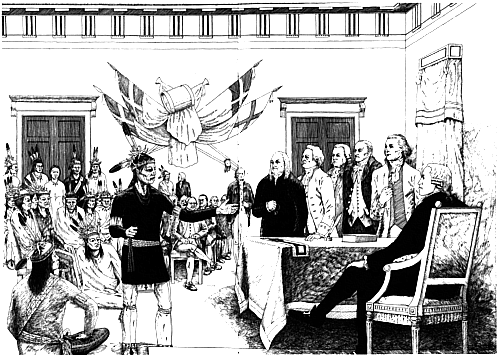Hannabir said:
Not 'American Indians', but specifically the Mohawks. They have the unique quality that they do not fear heights.

Oh, good, what I said was right.

Come on guys, I can see some of you saying that it's impossible to put all the civs you want into the game. It's true. Even in Civ IV, I imagine it isn't too difficult to ceate your own Civ. But the day that Sid comes out with 192 Civs (the number of actual civs today) is never going to come.
If Sid Mier started today adding in the other 180-something Civs for Civ IV, his youngest son would finish the project for him, because Sid would be dead.
(Yes, Sid is a mortal) Remember that the only native Americans (besides the Aztecs) were the Sioux. I don't remember any complaints there. Not to mention that the Sioux were dropped in Civ III. Again, I remember no complaints.
Many native tribes were nomadic.
That is why natives became Barbarians. The game is not about nomads, in fact it's now impossible. Sorry, but it is a nation building game.
This thread is a "knocker" thread. It does no more than scream "RACIST!" at passersby, making the forums less fun. I must ask the original poster a few questions:
1- What is the purpose of this thread?
It seems to have sparked three discussions: 1) Whether Sid is racist 2) Whether Civ IV is worth buying and 3) The history of Native Americans. I somehow don't believe that you wanted a history discussion.
2- What if your preferred tribe was placed in the game, and America was dropped because of it?
After all, only so many nations can be in the game. So far, the nations in the game have been powerful nations that last a long time. I hate to say it, but wake up. Most Natives are assimilated, and are not a nation anymore.
3- How often would you play that tribe?
I am American, and my ancestors were German. I rarely play those two, because it's fun to play other nations. Are you forgetting that Civ is fun?
If you, kenoyer, respond to this, answer all 3 of those questions, please.


 It is much easier for me to imagine playing as America in the ancient era when thinking of them as "indian-pioneer-explorer- peoples."
It is much easier for me to imagine playing as America in the ancient era when thinking of them as "indian-pioneer-explorer- peoples." listen you people, just because a devloper dosnt include a specific faction or every nation that ever existed does not mean their racist or just plain hate that nation, think about it, rise of nations didnt include america as a country does that mean they hate america? NO
listen you people, just because a devloper dosnt include a specific faction or every nation that ever existed does not mean their racist or just plain hate that nation, think about it, rise of nations didnt include america as a country does that mean they hate america? NO

